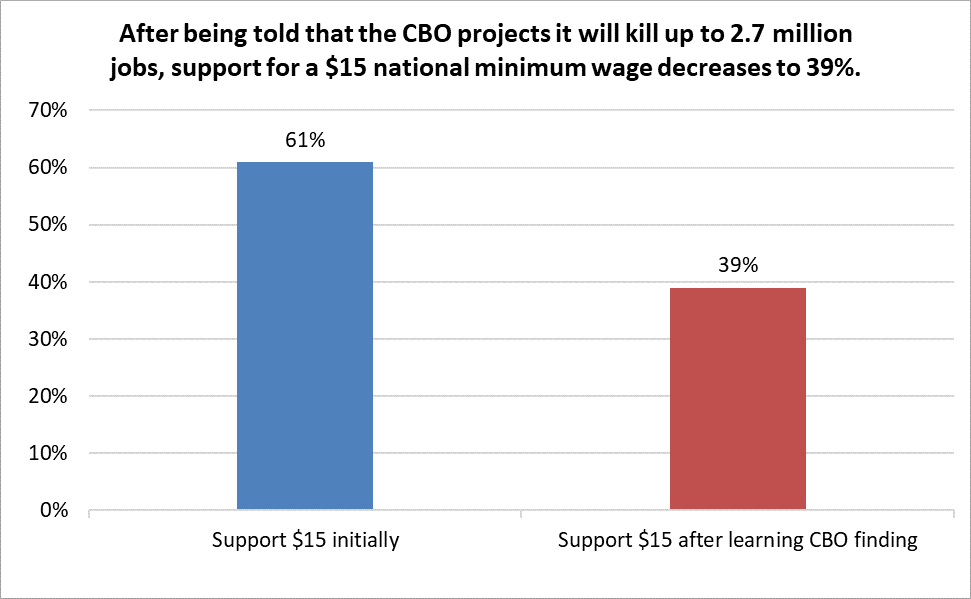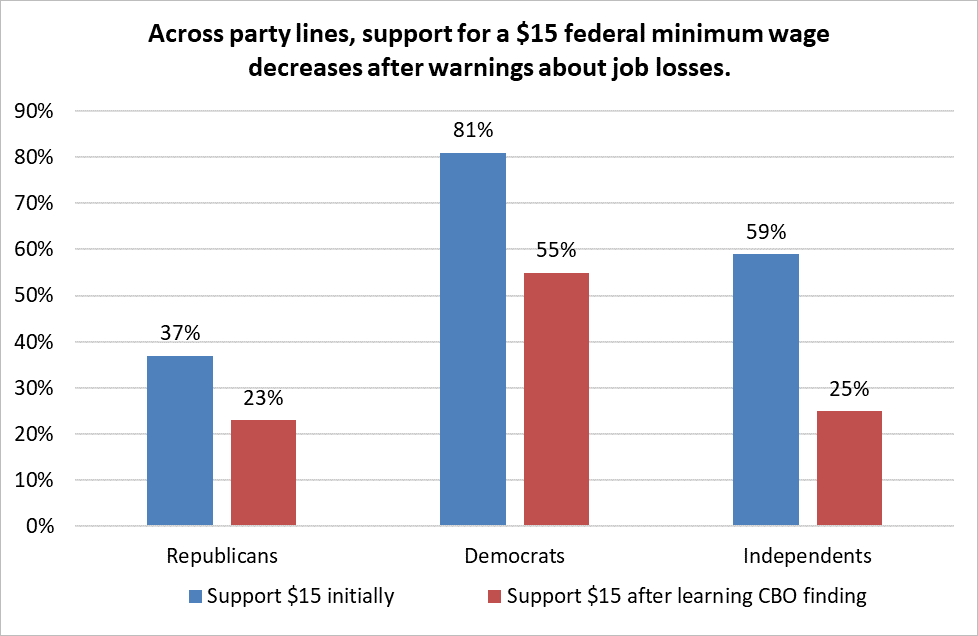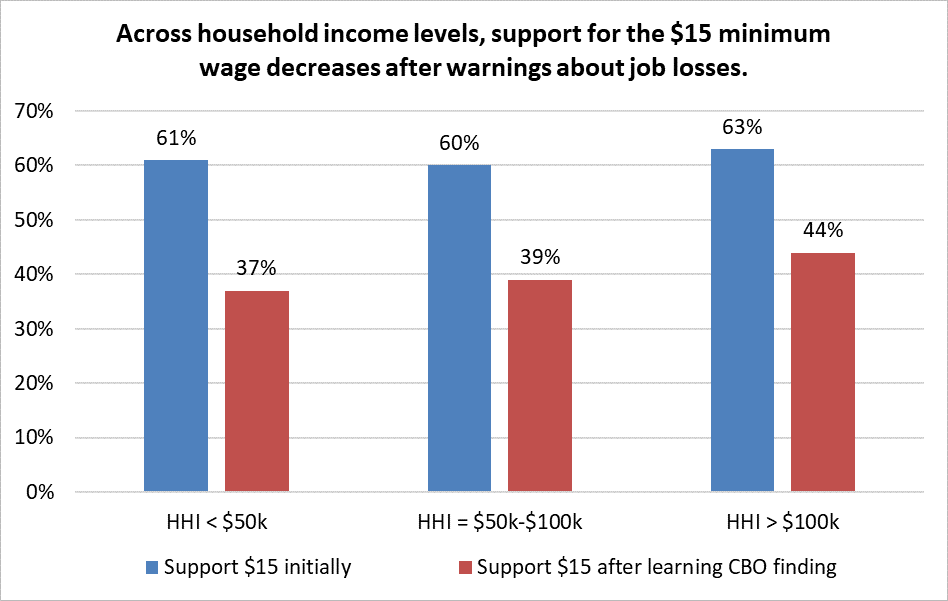A new survey commissioned by the Employment Policies Institute finds that Americans across party and socio-economic lines are significantly less likely to support minimum wage increases when presented with their negative effects. Following Sen. Bernie Sanders’ proposal to raise the federal minimum wage to $15, the nonpartisan Congressional Budget Office determined that doing so would result in up to 2.7 million jobs lost for low-wage workers. While Sanders’ first bill was ruled ineligible for passage in Congress’ last reconciliation bill, Democratic leadership has positioned to try again, either through another reconciliation or standalone bill.
Engine Insights polled 1,004 participants 18 and older if they support or propose a federal minimum wage increase to $15. A follow-up question presented the CBO projection, and then asked participants again if they support or oppose the policy.*
Analysis of the response data shows that when presented with the CBO’s main finding, support (including “strongly” and “somewhat” support) for the proposal falls from 61% to 39%, and opposition increases. “Strong” support reduces by more than half (38% to 17%).

This shift in opposition to a $15 minimum wage occurs across party lines. In light of information regarding its job-killing consequences, Democrat support for $15 decreased by 32% (26 percentage points), and Republican support decreased by 37% (14 percentage points). Independents showed the strongest shift: support for $15 decreased by 57% (34 percentage points).

Among varying household income levels, respondents earning less than $50,000 had the largest decrease in support for the $15 minimum wage once presented with the CBO findings. Among respondents with household incomes below $50k, support dropped 39 percent (24 percentage points).

As Democrats gear up for another attempt to pass a federal $15 minimum wage, lawmakers on the fence should beware the well-established consequences this would have for the workers they aim to help. While the raising wages sounds like a positive political talking point, the negative impacts on jobs – therefore the opportunities to earn a wage – are projected to outweigh the benefits. After hearing about the job-killing realities of a $15 federal minimum wage, Americans across party and socio-economic groups reject this policy – and Washington should heed their reservations.
*This Engine Insights CARAVAN online survey was taken March 26-28, 2021. The sample of 1,004 total participants 18 years and older was weighted by age, sex, geographic region, race, and education to ensure accurate representation of the total U.S. population. 5% risk level.
